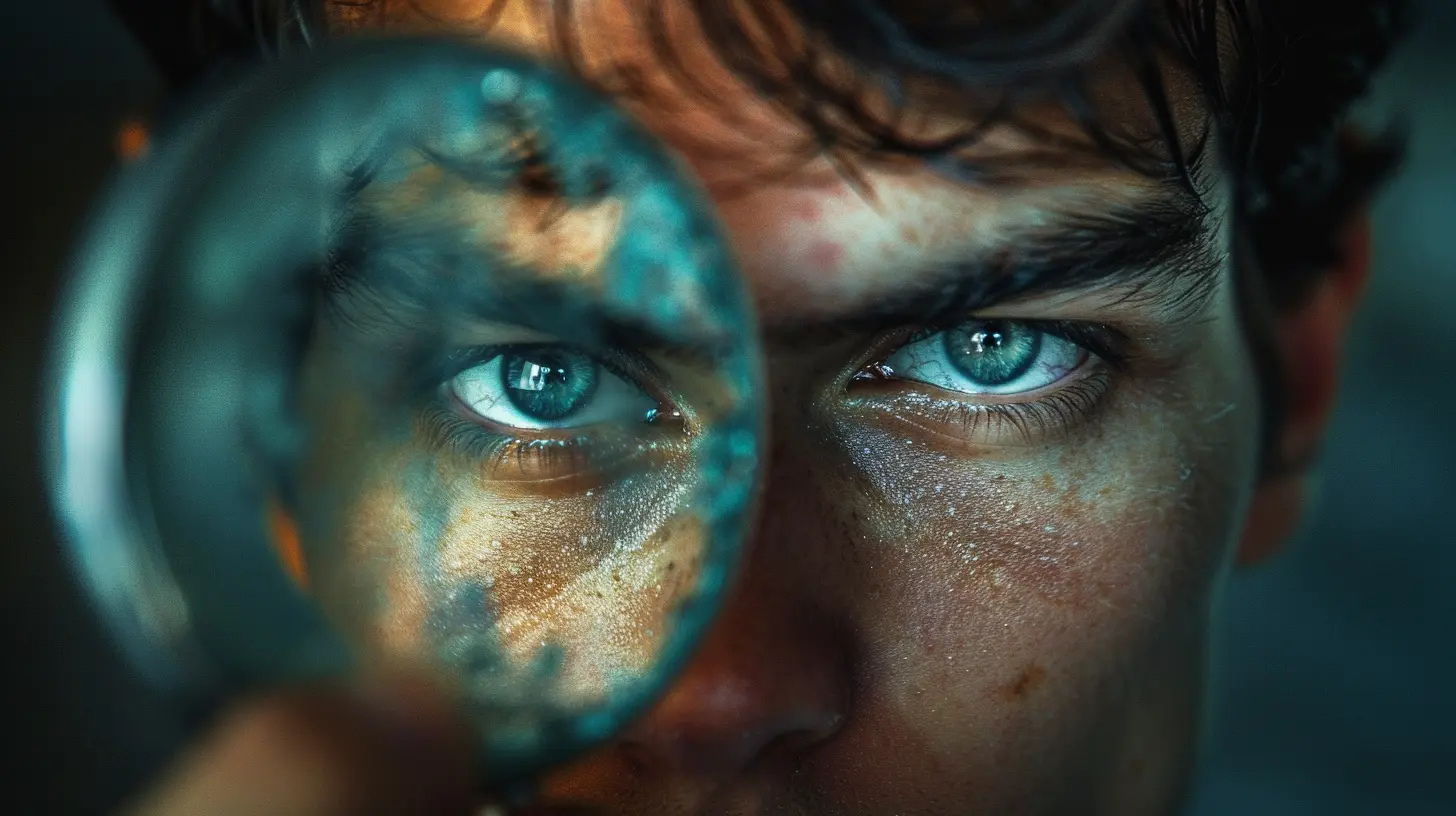Misconceptions About Histrionic Personality Disorder
24 May 2025
Let’s face it: mental health is already a tough cookie to crack—add a personality disorder to the mix and boom, the confusion triples! But among the crowd of misunderstood mental health conditions, Histrionic Personality Disorder (HPD) stands out as one of the most misrepresented. When you hear “histrionic,” what comes to your mind? Maybe someone who’s dramatic, overly emotional, or constantly craving the spotlight? Well, you wouldn’t be alone. That stereotype follows HPD like a shadow.
But the truth? It's much more complex than the media or pop culture often paints it. So, grab a comfy seat and your favorite drink—we're about to break down the common misconceptions about Histrionic Personality Disorder and peel back the layers of what it really means to live with it.
What Even Is Histrionic Personality Disorder?
Alright, before diving into the myths, let’s get the basics straight. Histrionic Personality Disorder is one of the Cluster B personality disorders (alongside narcissistic, borderline, and antisocial personality disorders). It's characterized by a pattern of excessive attention-seeking behavior, usually starting in early adulthood.People with HPD often display intense emotions, strive to be the center of attention, and can come across as overly charming or seductive. But—and this is a big “but”—this doesn't mean they’re manipulative or faking it.
This behavior isn't a performance; it's an ingrained part of how they relate to the world around them. It’s not about being "extra" for the sake of it.
Misconception #1: "They Just Want Attention"
Let me get this one out of the way—because it's by far the most popular and damaging myth.Yes, attention-seeking is a symptom. But it’s not the shallow cry for validation people assume it is. The need for attention in HPD isn't vanity; it's more like a deep, emotional hunger. Think of it like being parched and needing water—not just wanting a sip because it’s trendy.
People with HPD often feel invisible or unimportant unless they’re being noticed. It’s not about selfishness. It's about anxiety, low self-worth, and a shaky sense of identity. That need for attention becomes a coping mechanism, not a personality flaw.
Misconception #2: "They're Just Drama Queens"
Ah yes, the dreaded “drama queen” label—overused and misunderstood. This stereotype is not only dismissive but also incredibly unhelpful.While individuals with HPD may express emotions more intensely or outwardly than others, that doesn’t mean they’re being theatrical for fun. Their emotional expressions are genuine. Whether it’s joy, sadness, or frustration—what you see is what they actually feel, turned up a few notches.
Besides, isn't emotional expressiveness a human trait? We just have different levels, like the volume knob on a speaker. People with HPD often have theirs set on high, but the music’s still real.
Misconception #3: "They’re Manipulative or Flirt to Get Their Way"
This one stings because it paints people with HPD as calculating—something that couldn’t be further from the truth.Yes, some behaviors might come off as seductive or charm-heavy. But again, it's not a conscious ploy to manipulate. It's how some individuals with HPD learn to connect or feel validated. Often, they perceive affection or attention as love—and who can blame someone for wanting to feel loved?
There’s a big difference between malicious manipulation and unintentionally leaning on learned behaviors to feel seen. The former is intentional. The latter is survival.
Misconception #4: "They’re Just Insecure"
This one’s a bit tricky. There is often insecurity at the core of HPD, but reducing a complex condition to mere self-esteem issues is oversimplifying it.HPD is more than low confidence. It involves deep-rooted patterns of behavior, emotional regulation issues, and interpersonal struggles. It's a disorder—with neurological and psychological underpinnings—not just a quirky personality trait.
Imagine trying to navigate relationships, work, or even everyday conversations when your brain constantly tells you, "You need to be liked or they'll abandon you." That’s a lot more than insecurity; it’s an exhausting emotional puzzle.
Misconception #5: "They Can Just Turn It Off"
If only mental health worked like a light switch, right? But no—living with HPD isn’t something someone can turn on or off at will.Those with HPD don’t “choose” their behaviors. These symptoms are patterns that have developed over years, often rooted in early childhood experiences or trauma. Expecting someone to “just stop being dramatic” is like asking someone with a broken leg to just walk it off. Not gonna happen.
Healing and managing HPD involves therapy, patience, and support—not shame and judgment.
Misconception #6: "It’s Just Like Borderline Personality Disorder"
Now, this one's a common mix-up. While both HPD and Borderline Personality Disorder (BPD) fall under the Cluster B family, they have distinct features.BPD is typically marked by emotional instability, fear of abandonment, and impulsive behavior. HPD leans more towards attention-seeking, excessive emotionality, and a discomfort when not being the center of attention.
Sure, there might be some overlap (and yes, people can be diagnosed with both), but they’re not the same. They’re neighboring houses—not identical twins.
Misconception #7: "It’s Just an Excuse for Bad Behavior"
Let's cut to the chase—mental illness isn’t a free pass for cruelty or mistreatment. But here's the thing: most people with HPD aren't trying to hurt anyone.They might struggle in relationships or have difficulty understanding boundaries, but labeling those struggles as “bad behavior” creates more stigma and less empathy.
Think of it like someone trying to drive a car with a fogged-up windshield—you can't blame them for swerving a bit. HPD impacts perception, emotional regulation, and interpersonal insight. That doesn’t mean people with HPD can’t learn and grow—it just means they may need help defrosting that windshield.
Misconception #8: "They’re Always Outgoing and Sociable"
Surprise twist: not every person with HPD is the life of the party. Many are, sure, but not all.HPD doesn't always manifest as loud or extroverted. Sometimes it's subtle—a person who dresses to stand out, constantly seeks approval from peers, or becomes upset when they're overlooked.
The core issue is not about being social, but about seeking validation. And that can happen in a quiet library or a packed concert—it’s the internal need, not the volume of the expression, that counts.
Misconception #9: "They Can’t Have Healthy Relationships"
This one really needs correcting because it perpetuates hopelessness.Yes, relationships can be complicated for someone with HPD. They might struggle with boundaries, sensitivity to criticism, or emotional intensity. But does that mean they’re doomed to toxic relationships? Absolutely not.
With therapy—especially modalities like Dialectical Behavior Therapy (DBT) or Cognitive Behavioral Therapy (CBT)—people with HPD can build strong, respectful, and fulfilling relationships.
Romantic. Platonic. Professional. You name it.
Everyone has emotional baggage. The key difference? Some people carry it in a suitcase, others in a backpack. Either way, it can be unpacked.
Why These Misconceptions Are Harmful
When we stick to these myths, we:- Isolate individuals who are already struggling
- Create barriers to diagnosis and treatment
- Prevent understanding and empathy
Think about it—if you had a condition that made people label you as “too much” every time you showed emotion, wouldn’t you feel ashamed or silenced?
Truth is, stigma doesn’t help. Compassion does. The more we educate ourselves and ditch the stereotypes, the closer we get to a world where mental health is seen through a lens of empathy.
The Role of Therapy and Support
You don’t have to walk on eggshells around someone with HPD. What helps most is consistency, compassion, and open communication.For those living with HPD, therapy can honestly be life-changing. Not just for managing symptoms, but for building a stronger sense of identity, improving relationships, and reestablishing emotional balance.
Support groups, mindfulness practices, and even journaling can also serve as helpful tools on the path to self-awareness and growth.
A Human Behind the Label
At the end of the day, Histrionic Personality Disorder isn't about being “too much.” It’s about a person who’s navigating life with a different emotional compass. And you know what? That doesn’t make them less worthy of compassion or connection.Let’s drop the labels, the stereotypes, and the eye-rolls.
Let’s start seeing the human behind the diagnosis.
Because when we replace judgment with curiosity, and stigma with sensitivity, we all grow.
Final Thought
HPD doesn’t define a person. It’s just one part of their story. And like any story worth telling, it deserves to be told honestly—and understood deeply.Let’s leave behind the myths and choose empathy instead.
all images in this post were generated using AI tools
Category:
Psychological DisordersAuthor:

Nina Reilly
Discussion
rate this article
2 comments
Damian McTiernan
Because who doesn’t love drama, right?
June 9, 2025 at 2:23 AM

Nina Reilly
While drama can be entertaining, it’s important to understand that Histrionic Personality Disorder involves deep emotional struggles that go beyond mere attention-seeking.
Xavi McQuillan
Histrionic Personality Disorder often misinterpreted; it's more about emotional needs than mere attention-seeking behavior.
June 3, 2025 at 4:29 AM

Nina Reilly
Thank you for highlighting this important nuance! Emotional needs play a crucial role in Histrionic Personality Disorder, and understanding this can lead to greater empathy and better support for those affected.


